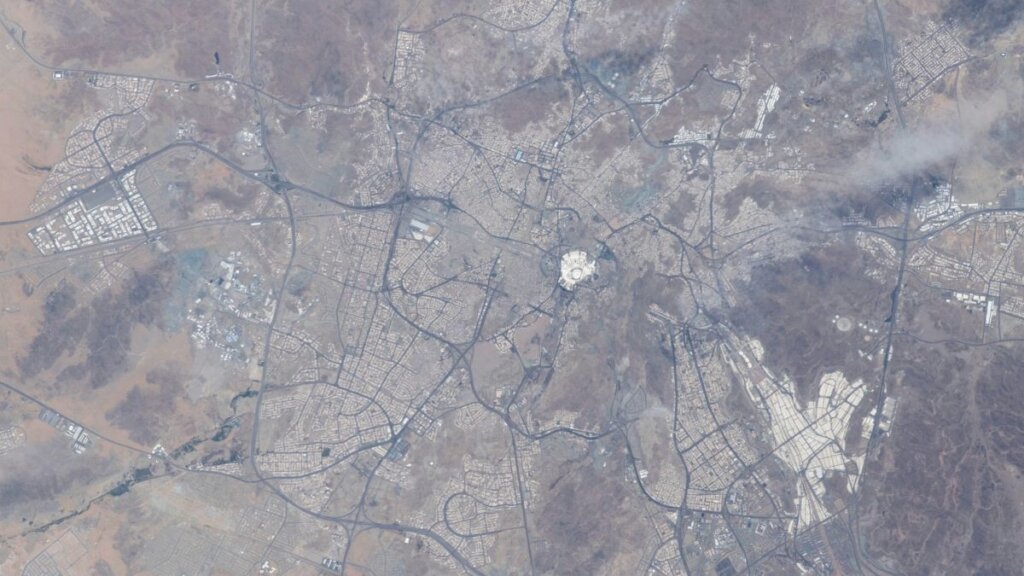
UAE astronaut spies Mecca from space station during Hajj (photo) (Image Credit: Space.com)
The first long-duration Emirati astronaut to reach space photographed Mecca on Monday (June 26) during an annual pilgrimage there by Muslims.
United Arab Emirates (UAE) astronaut Sultan Al Neyadi, who also observed Ramadan off Earth shortly after his March 2 launch to the International Space Station (ISS), paid tribute to the Hajj (pilgrimage) alongside a tweet showcasing the Saudi Arabian sacred city.
“Today is Arafat Day, a pivotal day during Hajj, that reminds us that faith is not just about belief, but also action and reflection,” Al Neyadi tweeted on Tuesday (June 27) in a post that featured the photo, which he snapped on Monday. “May it inspire us all to strive for compassion, humility and unity.”
Related: UAE’s 1st long-duration astronaut marks the start of Ramadan in space
Today is Arafat Day, a pivotal day during Hajj, that reminds us that faith is not just about belief, but also action and reflection. May it inspire us all to strive for compassion, humility, and unity. Here’s a view of the holy site of Mecca 🕋 that I captured yesterday. pic.twitter.com/mGI65NeEmhJune 27, 2023
The Hajj, or pilgrimage to Mecca, is one of the tenets of Islam. It requires every able-bodied adult Muslim who can afford it — without undue hardship to family members — to go to the holy city at least once in their lifetime. Proxies can also be appointed in case of difficulties, however.
“The pilgrimage rite begins on the seventh day of Dhū al-Ḥijjah, the last month of the Islamic year, and ends on the 12th day,” according to Encyclopedia Britannica. The hajj dates vary every year in the Gregorian calendar that most of the world uses, as the Islamic calendar follows the cycles of the moon. This year, the Gregorian dates of Hajj are June 26 to July 1.
Al Neyadi observes Islam, but did not say in his tweet whether he has yet made the pilgrimage. He expressed an interest in fasting for Ramadan (another tenet) while in orbit, but added before launch that he may not participate for operational reasons.
Related: SpaceX Crew-6 astronaut mission: Live updates
Al Neyadi is not the first astronaut to be in space during Ramadan; the first-ever Muslim to go to space, Prince Sultan bin Salman Al-Saud of Saudi Arabia, launched on the space shuttle mission STS-51G as the holy month was finishing on June 17, 1985.
While in space, Al Neyadi plans to perform 19 experiments covering matters such as radiation, sleep, back pain and material science, according to an overview provided by the Mohammad Bin Rashid Space Centre, which manages the UAE’s astronaut program.





